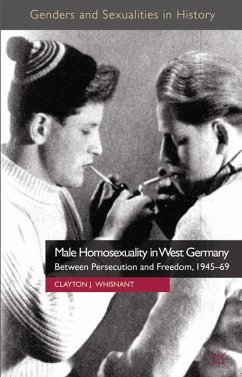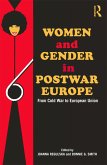Whisnant argues that the period after Nazism was more important for the history of homosexuality in Germany than is generally recognized. Gay scenes resurfaced; a more masculine view of homosexuality also became prominent. Above all, a public debate about homosexuality emerged, constituting a critical debate within the Sexual Revolution.
"It is, as far as I can see, the first English-language monograph offering a comprehensive and source-based treatment of the post-war history of male same-sex desires in West Germany. It offers its readers numerous fruitful thoughts and inspiring insights into the history of homosexualities as well as German history." - Benno Gammerl, Max Planck Institute for Human Development, Germany








